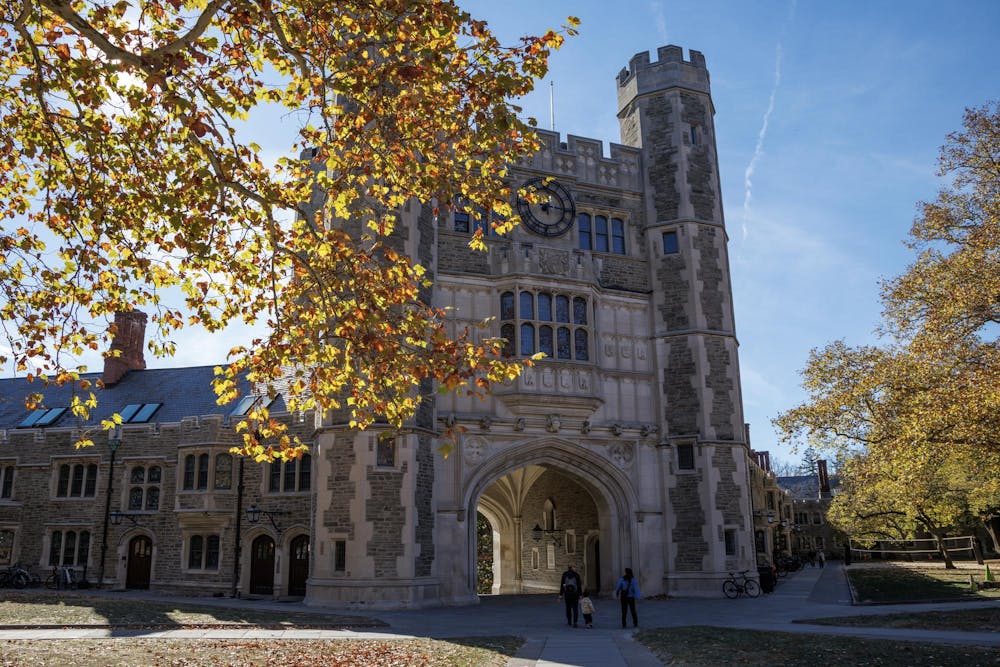As I walked through the Election Watch Party at Whig-Clio on Election Night last week, I wasn’t sure what the outcome would be. The red wave came as a surprise to most people at Princeton, including myself. Donald Trump won all seven swing states and became the first Republican to win the popular vote in 20 years. Republicans also now control the Senate and won eight out of 13 gubernatorial races.
At Princeton, there is a stereotype of the classic Trump voter: hateful, uneducated, racist, and transphobic. Sitting at an Ivy League institution where a pre-election poll found that 74 percent of eligible undergrads cast votes for Harris, it’s easy to think that people don’t vote for Trump unless there is something really messed up about the way they see the world — but Princeton’s favorable view of the Democrats is an outlier. Voters under 30 shifted right in this year’s election, where Harris had only a 5 point advantage, as opposed to Biden’s 25. We shouldn’t dismiss Trump voters as hateful, uneducated, or misinformed; we should engage with them about where they are coming from and why they made the choice they did.
The 2024 election broke many records. A Republican presidential candidate won the 97 percent Hispanic Starr County in Texas for the first time since 1892. Anson County, North Carolina, which has a 40 percent black population, backed a Republican twice since Reconstruction: Richard Nixon in 1972 and Donald Trump in 2024. Women broke for Harris by only half as much as they did for Biden in 2020. Harris won my home state of New Jersey by only 4 points, which Clinton won by 14 points in 2016 and Biden won by 16 points in 2020. Yet at Princeton, these national statistics are not reflected in the community.
It’s difficult to be at Princeton and see beyond the Orange Bubble. Nassau Street has always been overpriced, but the price of living within Princeton’s campus has remained more or less consistent. For example, it still only takes $7 to bring a guest for lunch at my eating club, which is not reflective of the prices in the rest of the country. Across the board, economic issues, such as inflation and the rising cost of living, are impacting Americans in a far more significant way that Princeton students on campus are not impacted by. In Nevada, a state that Trump won for the first time and where registered nonpartisans outnumbered voters of either party, trusted Trump to fix the economy. Friends and neighbors back home who voted red also largely cited kitchen-table issues, such as the soaring price of eggs and gas.
The streets of Princeton are extremely safe, and PSAFE is available and watchful in the dead of night. In contrast, I have spent three of my Princeton summers in Washington, D.C. There were many points in which I did not feel safe, even in broad daylight. I heard from residents that things had felt much safer four or five years ago before Washington’s city council moved to cut the police department’s budget, following the death of George Floyd. It is not hard to think that voters in even very Democratic cities have noticed a shift and voted red based on the desire to bring back safer neighborhoods. In California, Proposition 36 passed a ballot measure, which would increase penalties for repeated theft and certain drug crimes, including fentanyl.
According to Gallup’s annual Values and Beliefs survey conducted on May 1, 2024, 38 percent of Americans say they are very conservative or conservative on social issues, up from 33 percent last year. This percentage is the highest it has been since 2012. At the same time, the percentage of Americans who say their social views are very liberal or liberal has dropped to 29 percent, from 34 percent in the last two years. The survey also found that 44 percent of Americans say they’re economically conservative, which is the highest it has been since 2012. By contrast, only 11.1 percent of the incoming Class of 2028 described themselves as somewhat or very conservative. When there is such a huge discrepancy between Princeton’s campus and the rest of the country, it may be easy to overlook minority views at Princeton. Consequently, the way that Princeton students think about politics can be very divorced from the rest of the country: often, the rhetoric that might do well on this campus does not fly with the rest of America. This makes it even more important for us to have conversations with those we perceive to be a minority.
Rep. Seth Moulton (D-Mass.) recently said, “Democrats spend way too much time trying not to offend anyone rather than being brutally honest about the challenges many Americans face.”
“I have two little girls, I don’t want them getting run over on a playing field by a male or a formerly male athlete, but as a Democrat I’m supposed to be afraid to say that,” he concluded.
Moulton certainly did not vote for Trump, but his concerns are echoed by many parents nationwide. The desire to better afford basic necessities, live in safer neighborhoods, and protect one's children are not crazy or irrational desires. Take the time to look around at some of your peers within Princeton, and to the communities that you may not be as familiar with outside as well. “I voted for Donald Trump,” and “I’m excited for the next four years,” should not be a reason to dehumanize or overlook that person but perhaps an opportunity for communication and understanding.
Julianna Lee is a senior from Demarest, N.J., majoring in Politics. She can be reached at julianna.lee[at]princeton.edu. Julianna is a big fan of road trips and has been to 43 states. Lee’s column, “To Old Nassau,” runs every three weeks on Tuesdays. All of Lee’s columns can be read here.









